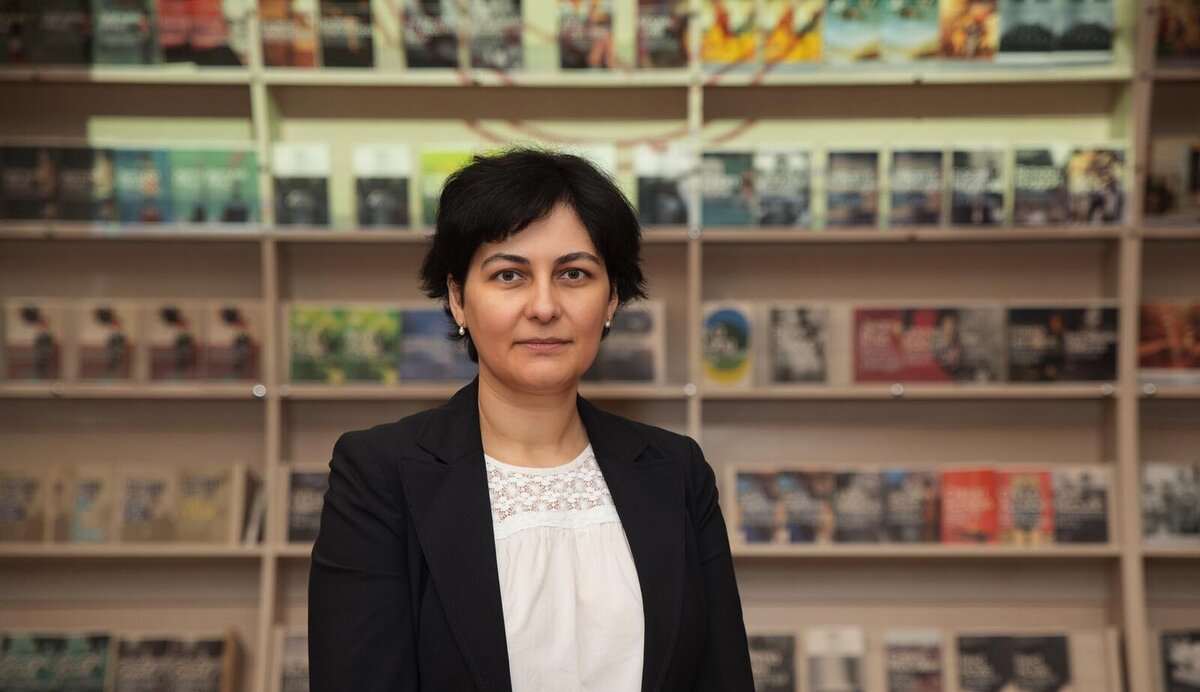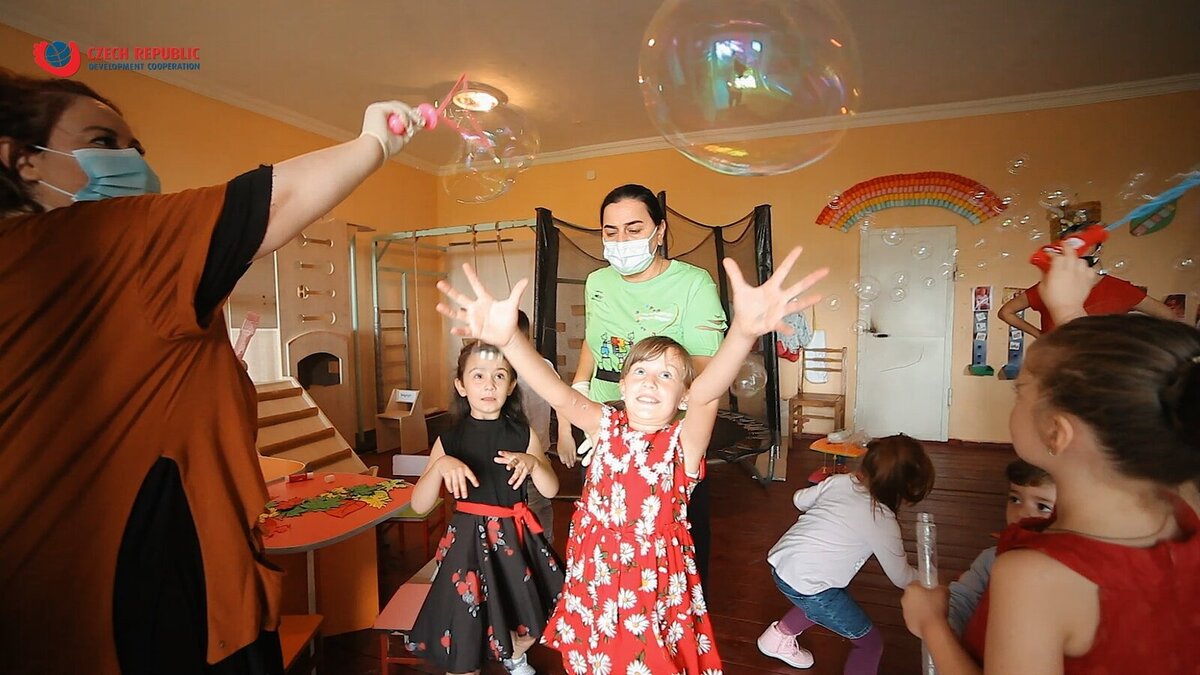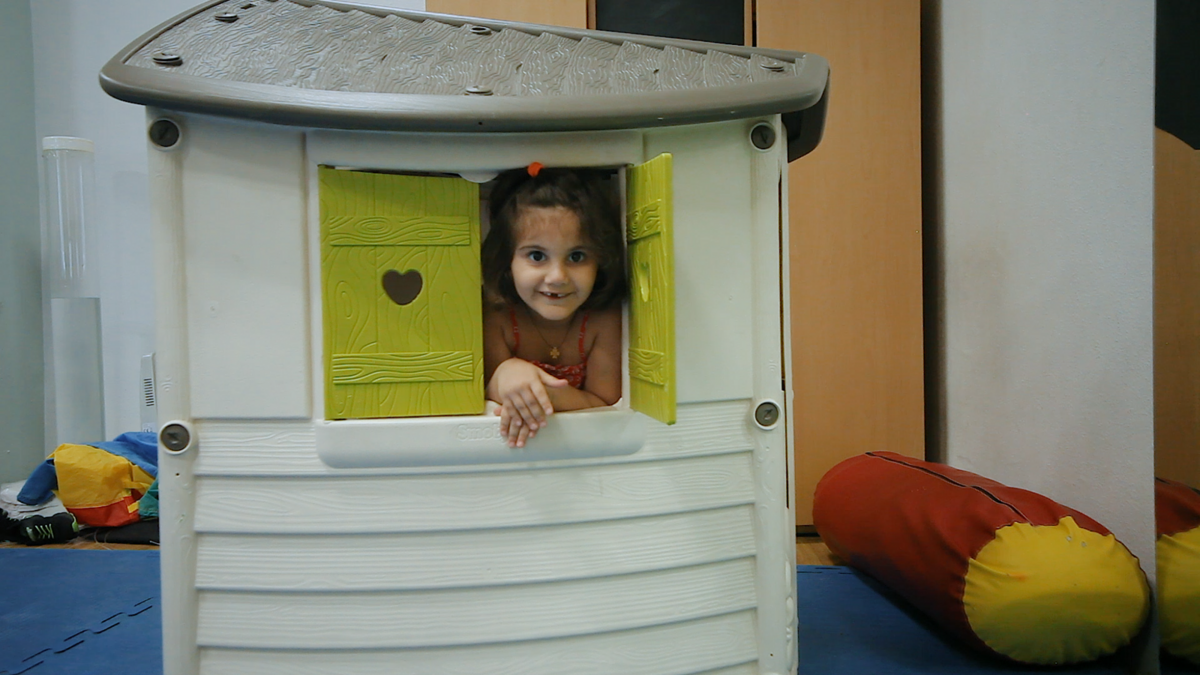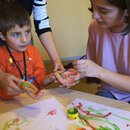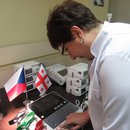April 2 marks World Autism Awareness Day, and Caritas Czech Republic continues its tradition of joining the global effort to raise awareness. This year, we spoke with Tinatin Chincharauli, a professor at Ilia State University, about the importance of early autism identification, the progress made in raising awareness in Georgia, and the challenges faced by individuals on the autism spectrum in the country.
Tinatin, awareness plays a crucial role in the early identification and timely intervention of autism spectrum disorder. Significant efforts have been made in this direction in recent years. How would you assess the current level of autism awareness in Georgia?
Awareness of autism has increased significantly in recent years. One clear indicator of this progress is that children are now being referred for assessment at an earlier age—typically around two to two and a half years old. If a child's language development does not follow the expected timeline, parents are increasingly proactive in seeking answers. This shift has made early identification and timely intervention much more accessible.
I believe this improvement is the result of efforts on multiple fronts. The five-year work of Caritas Czech Republic has been particularly noteworthy. With funding from the Czech government, new centers have been established across the country to serve children with autism spectrum disorder and neurodevelopmental conditions. Many specialists in the field have undergone retraining, and timely assessment and intervention services have been introduced in regional areas. Additionally, nationwide information campaigns have been conducted, and an autism awareness protocol was developed. Awareness sessions were also held for primary healthcare professionals, further enhancing early detection efforts. Another significant achievement has been the expansion of municipal funding for autism services beyond Tbilisi, making them available in other regions as well.
What challenges do children with autism and their families face in Georgia today?
The challenges are numerous, and they evolve as children grow older. While society tends to be more accepting of unusual behaviors in young children, as they age, stereotypical behaviors—such as repetitive sounds or distinctive motor movements—often lead to social exclusion.
At a young age, both the state and society provide more support, with various services available for children with autism and their families. However, as they grow older, this support decreases significantly. While it is encouraging that services for children are now available nationwide, the next critical step is improving the quality of these services. This includes supporting parents, as current services are primarily child-centered. Studies consistently highlight that a child's well-being is closely linked to their family's well-being, yet state-funded programs provide little assistance for parents. In adulthood, individuals on the autism spectrum receive even less support than in childhood, and their families face a severe lack of resources.
When a parent must provide 24/7 care without any support system, it can severely impact their mental health, often leading to burnout. This, in turn, negatively affects not only the parent but also the child. If a support network exists, it typically comes from friends and relatives rather than formal state assistance. What is needed is a systemic approach, where support services are integrated into state policy, ensuring that families are not left to manage alone.
Despite growing awareness, stereotypes and misconceptions about autism persist. What do you see as the biggest challenge in changing societal attitudes?
The biggest challenge is that society expects individuals with autism to change, rather than recognizing that society itself needs to adapt. The primary difficulty faced by autistic individuals is communication—forming and maintaining relationships. However, instead of demanding that they conform to traditional communication styles, we should focus on creating an environment that accommodates their needs.
For example, when interacting with a child, it’s natural for people to want to hug or touch them affectionately. However, before doing so, one should understand that consent from the child is important. Respecting personal space is a small but significant way society can adjust its behaviors. In many everyday interactions, small changes in communication and social expectations can make a profound difference in fostering inclusion and understanding. Society must recognize that building meaningful connections is a two-way effort—not just the responsibility of individuals with autism.
Experts emphasize the importance of early autism diagnosis and intervention. However, many parents struggle to accept that their child’s development may be different from that of their peers. Why is timely diagnosis so critical?
It’s better to be overly cautious than too late. Parents should not rely on common myths such as “boys start talking later” or “my grandfather also spoke late.” The world is constantly changing, and so are our expectations for child development. There are two key indicators to watch for: Speech development – By 18 months, a child should attempt to use individual words. By two years old, they should start combining two words into simple sentences and Social interaction – The child should actively engage in emotional exchanges with caregivers and show differentiated responses when interacting with parents, familiar people, and strangers. These signs are often noticeable at an early age.
Assessing a child’s development as early as possible helps avoid delayed interventions. The earlier we start, the more effective the support will be. This is because the brain undergoes rapid development in early childhood, and providing the right stimuli at this stage significantly enhances a child's ability to cope with future challenges.
Finally, what message would you like to share with the public on World Autism Awareness Day?
World Autism Awareness Day should be more than just a symbolic show of solidarity. It should serve as a moment of reflection—an opportunity to evaluate what we have done over the past year to improve the lives of people on the autism spectrum and their families. More importantly, it should prompt us to take concrete steps toward making lasting improvements before the next April 2.


